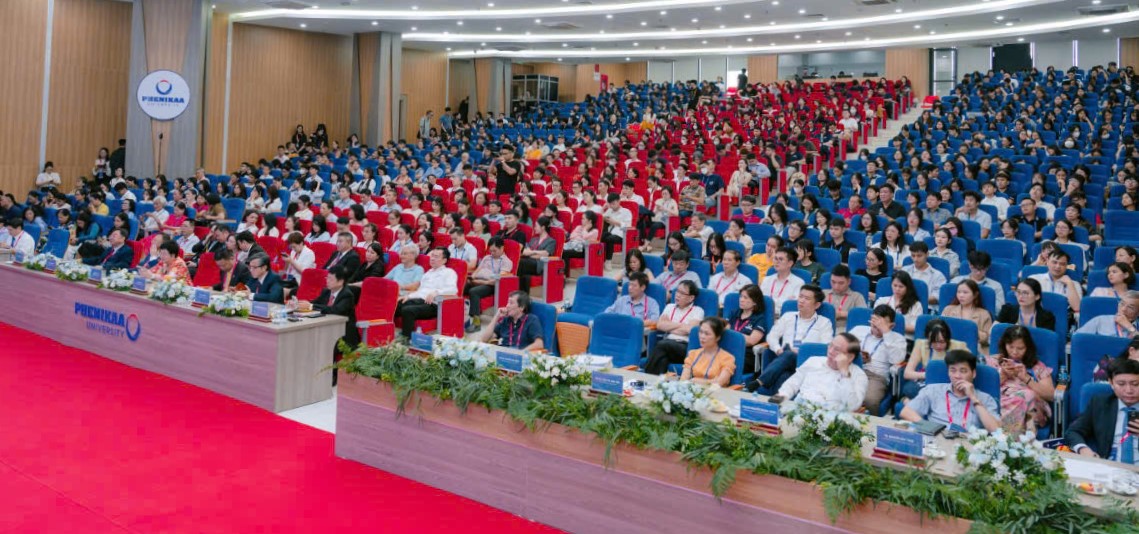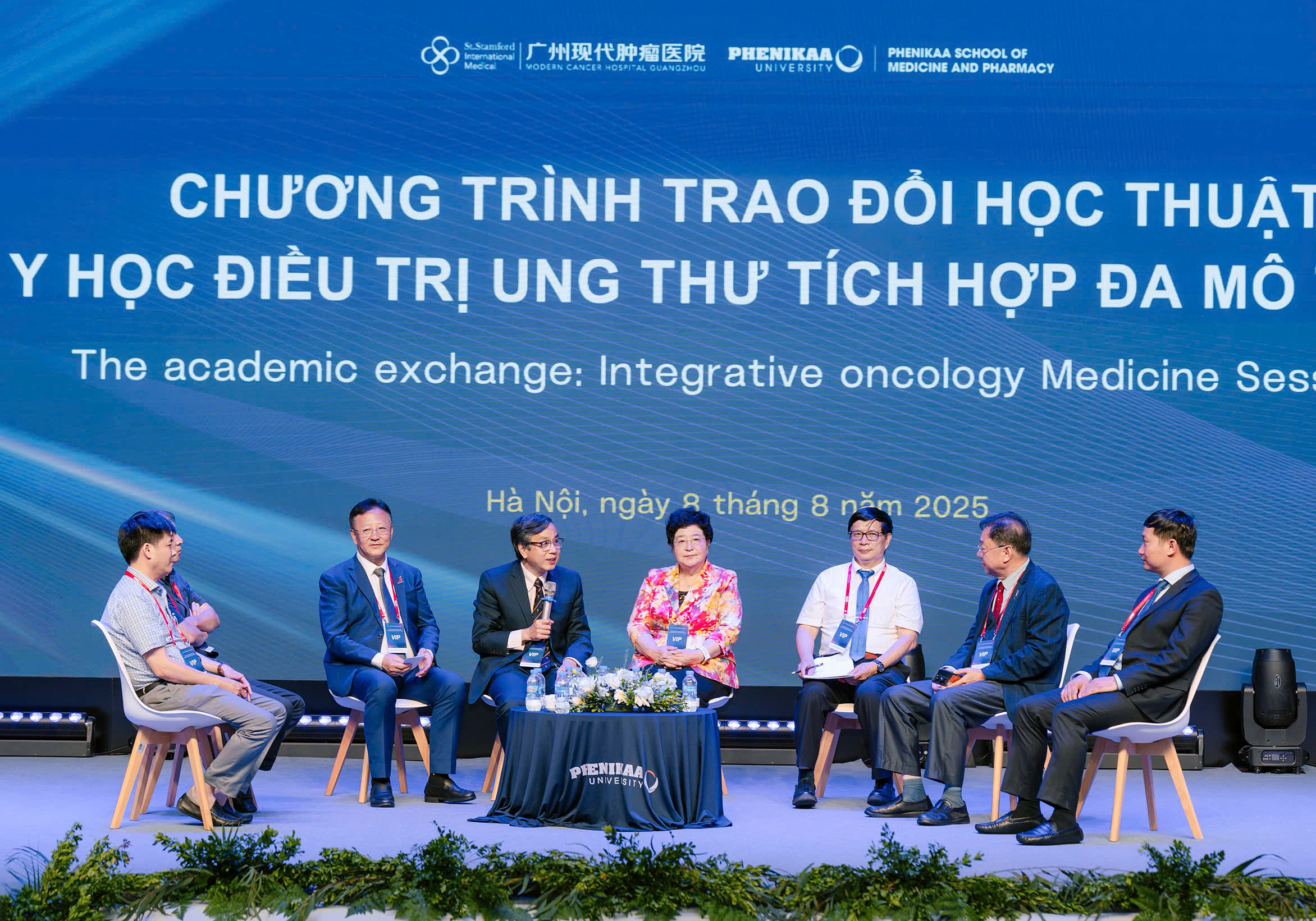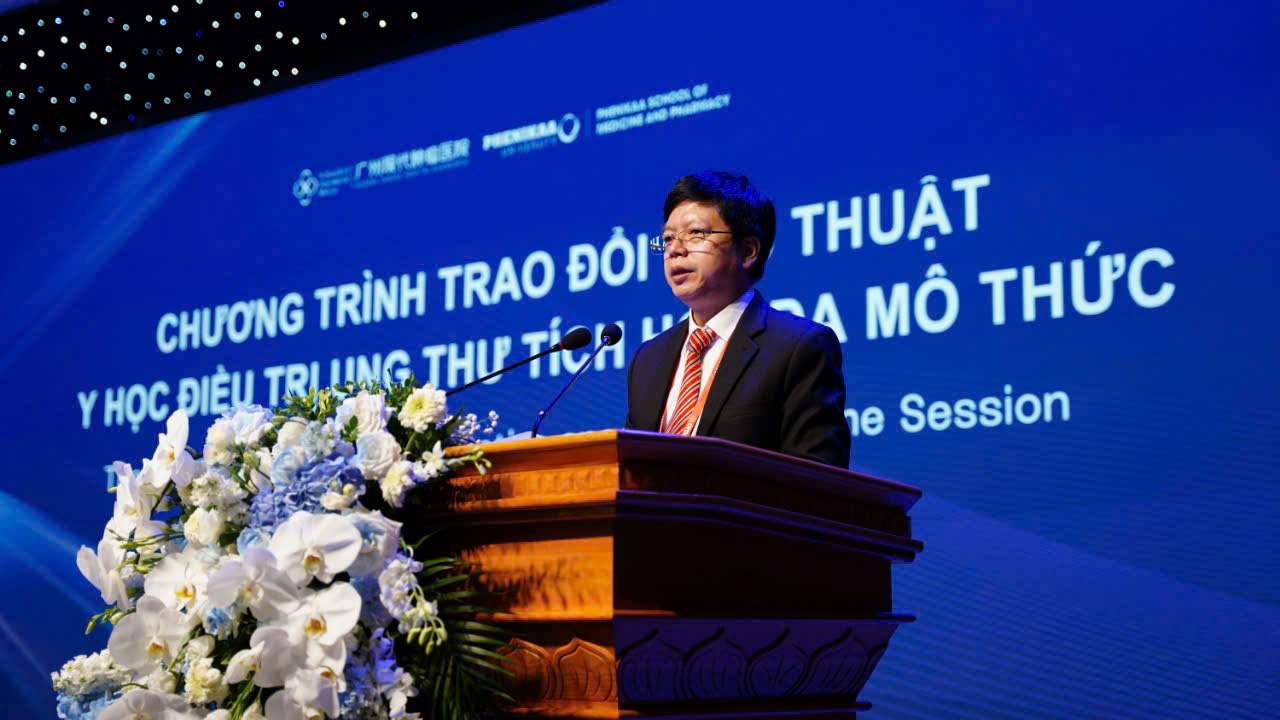This was the message at the 5th ASEAN International Integrative Oncology Forum, themed "Unity through Integration," recently held in Hanoi. Nearly 700 participants from medical agencies, associations, research institutes, and clinical experts from China and Vietnam attended the forum.
The event was co-hosted by the Chinese Anti-Cancer Association (CACA) and the World Association of Integrative Oncology (WAIO), and organized by St. Stamford Modern Cancer Hospital Guangzhou, China.
 |
Hundreds of experts from China and Vietnam attended the conference. Photo: St. Stamford Modern Cancer Hospital Guangzhou |
Hundreds of experts from China and Vietnam attended the conference. Photo: St. Stamford Modern Cancer Hospital Guangzhou
Cancer is a leading cause of death worldwide, with nearly 10 million deaths in 2020, according to World Health Organization (WHO) statistics from February of that year. The burden of cancer continues to rise globally, placing immense physical, emotional, and financial strain on individuals, families, communities, and healthcare systems. Therefore, treating and controlling cancer is crucial in reducing this healthcare burden.
Integrative cancer treatment, also known as multidisciplinary treatment, combines various treatment methods to optimize effectiveness and minimize side effects. This approach is showing promising results in treating and managing the disease.
This forum focused on clinical transfer and regional practices regarding the philosophy of integrative medicine in cancer treatment through various presentations. The presentations emphasized prevalent cancers in Southeast Asia, such as breast, liver, lung, and stomach cancers. Experts discussed key aspects like accurate diagnosis, personalized treatment, minimally invasive interventions, multidisciplinary coordination, and rehabilitation management. They aimed to bridge theory and practice, enhancing cancer prevention and control capabilities across the region.
 |
Experts discuss and dialogue on multidisciplinary treatment. Photo: St. Stamford Modern Cancer Hospital Guangzhou |
Experts discuss and dialogue on multidisciplinary treatment. Photo: St. Stamford Modern Cancer Hospital Guangzhou
A notable presentation was by Professor Wang Ying, Vice President of the CACA, on "The Status and Challenges of Cancer Prevention and Control in China." She highlighted the significant cancer burden, but noted that due to technological advancements and supportive policies, the 5-year survival rate for patients has reached 43.7%. The report also affirmed the importance of integrative medicine and international collaboration in enhancing cancer prevention and control.
The practical implementation of integrative treatment in different countries and regions was extensively discussed during a dedicated dialogue session. Solutions were proposed for key issues, including advancements in cancer treatment techniques, interdisciplinary coordination, and the application of standard guidelines to foster multi-faceted consensus.
Academician Fan Daiming, President of WAIO, CACA, and the Asian Oncology Society (AOS), expressed his hope that the forum would enable regional experts to share initiatives and practical experiences, contributing to the development and adaptation of integrative cancer treatment within each country.
 |
Nguyen Trong Khoa, Deputy Director of the Department of Medical Examination and Treatment Management, Ministry of Health, speaks at the event. Photo: St. Stamford Modern Cancer Hospital Guangzhou |
Nguyen Trong Khoa, Deputy Director of the Department of Medical Examination and Treatment Management, Ministry of Health, speaks at the event. Photo: St. Stamford Modern Cancer Hospital Guangzhou
Sharing the same view, Nguyen Trong Khoa, Deputy Director of the Department of Medical Examination and Treatment Management, Ministry of Health, emphasized Vietnam's prioritization of cancer prevention and control. He expressed a desire for collaboration with other nations in finding effective prevention models, and indicated that Vietnam would implement supportive policies for the development of integrative medicine, contributing to building a healthier global community.
Experts anticipate that with close collaboration and continuous efforts, integrative medicine can flourish in Southeast Asia, offering new hope for cancer patients and advancing cancer prevention and control efforts.
Van Ha












